
Fleet fuel cards are vital tools for any business involved in managing a fleet of vehicles. By leveraging a fleet fuel card comparison, businesses can better understand their options across various fleet fuel cards, fleet cards, and gas cards, ultimately optimizing their fleet management processes. These cards play an essential role in controlling and tracking fuel purchases, which is a crucial aspect of managing a company's transportation costs.
Essentially, fleet fuel cards, or simply fuel cards, function as specialized payment solutions designed specifically for organizations with numerous vehicles. Unlike traditional credit cards, fleet fuel cards provide comprehensive transaction data and real-time reporting, which is indispensable for businesses aiming to maintain a robust system of checks and balances. This feature is often enhanced by the availability of detailed reporting options that help in delineating a clearer view of expenditure patterns.
When engaging in a card comparison, businesses should consider several factors in order to select the most suitable option. Factors such as spending controls, card fees, network coverage, and specific use cases are critical components of a well-rounded comparison. A good fleet fuel card comparison can illuminate the differences between providers while highlighting unique advantages that align with specific business needs.
Additionally, these cards support a wide array of functions beyond just fuel purchases. They offer GPS tracking, route optimization (referred to as fleet navigator functions), and various other fleet management aids. With this comprehensive suite of tools oftentimes bundled into fleet fuel cards, companies are better positioned to enhance their operational efficiency and reduce unnecessary fuel consumption.
Businesses tackling fleet management challenges are advised to explore different fleet fuel card options to ensure optimal cost savings and improved logistical oversight. From route planning to driver performance evaluations, these cards support various strategic efforts. This card comparison process is simplified by the expansive network coverage offered by providers, allowing for seamless transactions at numerous participating fuel stations.
By examining the landscape of fleet cards, whether they be traditional cards or corporate fleet cards, companies can determine which solution aligns best with their specific needs and budgetary constraints. Amid a myriad of available options, conducting a nuanced card comparison allows for an informed decision-making process, highlighting the value and benefits of each card type.
Ultimately, fleet fuel cards are indispensable for companies seeking to streamline their operational expenses, monitor fuel consumption meticulously, and implement effective spending controls. Through thoughtful consideration, facilitated by a comprehensive fleet fuel card comparison, businesses can choose from among the best fleet card providers and unlock improved management potential across their fleet operations.
In the coming sections, we'll delve further into topics like how fleet fuel cards work, the benefits of fuel cards for fleets, and how these cards can be seamlessly integrated into existing business solutions.

Fleet fuel cards, such as the Fleet Fuel Card, have become an essential component for managing a fleet's fueling needs, providing a suite of features and technology solutions for businesses. So, how exactly do these cards work, and what makes them such invaluable tools for fleets? At their core, fleet fuel cards are designed to streamline fuel purchases, allowing drivers to use a designated card to pay at the pump, whether it's for gasoline or diesel. This means they don't need to carry cash or personal credit cards, simplifying transactions for both employees and fleet managers.
The use of fleet fuel cards begins with a company's setup of accounts within a digital platform. This platform often includes a dashboard that consolidates data on fuel purchases, gallons used, and employee fueling patterns. The consolidated data is crucial for auditing and optimizing a fleet's operations. Moreover, fleet managers can configure spending controls, which are vital for maintaining a budget and ensuring compliance with company fueling policies. For example, spending controls can set daily or weekly fuel limits, restrict purchases to certain days or times, and limit fueling payments to specific geographic areas.
Fleet managers using fleet fuel cards also benefit from tailored card packages. These packages, like a flexcard option, offer businesses customizable account settings that align with specific needs, such as setting employee permissions or managing card fees. Features like real-time transaction tracking and detailed reporting make fleet fuel cards a transparent and efficient tool to combat fuel fraud and misuse. By leveraging such features, companies can enhance their operational efficiency and reduce unnecessary expenses.
Additionally, technology integrated into fleet fuel cards enables easy online management of accounts. This web or app-based access allows fleet managers to quickly review transactions, amend controls, and even disable cards if necessary. This functionality keeps businesses agile and responsive to their fuel management needs, paving the way for improved resource allocation. Another aspect of fleet fuel cards is their compatibility with vast network coverage. This ensures drivers can access a wide range of fuel stations nationwide, increasing convenience for long-haul operations and reducing downtime searching for compatible fueling locations.
Fleet fuel cards bridge the gap between traditional fuel purchase methods and modern business needs. With expert-designed packages, these cards provide more than just a payment method; they deliver a strategic solution for corporate fleet management. Whether a company is looking to minimize card fees, maximize control over fuel expenditures, or adopt a comprehensive fueling strategy, fleet fuel cards like the Fleet Fuel Card offer the flexibility and insight necessary to fine-tune a fleet's operations.

Understanding the benefits of fuel cards for fleets is crucial for effective fleet management and business optimization. Fuel cards offer a range of advantages, from fuel rebates that can significantly cut business expenses to per-gallon discounts that ensure each fill-up saves money. One of the main benefits is providing spending controls, empowering managers to oversee fuel costs with precision. Fleet fuel cards enable the setting of spending limits, ensuring the rate of daily or monthly fuel consumption stays within the budget parameters. Given the volatility of fuel prices, a per-gallon discount can provide considerable savings, which, over time, contribute to the bottom line of any fleet management operation.
Network coverage is another aspect to consider. With the right fleet fuel card, companies gain access to an extensive network of stations that offer diesel or gasoline, increasing convenience and accessibility. A wide network means drivers have the freedom to refuel without significant detours, which enhances operational efficiency. Most corporate fleet cards have partnerships with major fuel chains, ensuring that your fleet is never too far from a participating station.
Moreover, solutions offered by these cards extend beyond just purchasing fuel. Many cards provide data analysis tools to monitor fuel usage and driver habits, which can be invaluable for optimizing fleet operations. For example, by analyzing trends, a fleet manager might observe certain drivers going to stations that charge higher rates and can then guide them towards stations with better discount rates. This attention to every gallon used ensures more efficient use of resources and helps identify areas for improvement.
Fuel cards also offer free support services, ranging from easy fuel reconciliation to real-time transaction monitoring. Having such comprehensive solutions at your fingertips means not only are your fleet's fuel transactions streamlined, but you also have aids in identifying potential fraud or misuse before it impacts your business. Many corporate fleet cards, like those integrated with Mastercard networks, include features such as alerts for unusual spending patterns or unauthorized transactions, providing additional safety measures.
When considering the type of fleet fuel card to choose, explore options that cater to your specific needs, whether it be cards tailored for diesel at certain stations or those offering superior credit rates. Comparison is key here, as the right choice not only provides financial savings through fuel rebates and other perks but also aligns with your business needs and offers scalability for future growth. These cards can be aligned with existing business solutions and integrated into broader management systems. Utilizing tools provided by fleet fuel cards means ensuring the best outcomes in terms of cost savings, operational efficiency, and overall fleet performance.
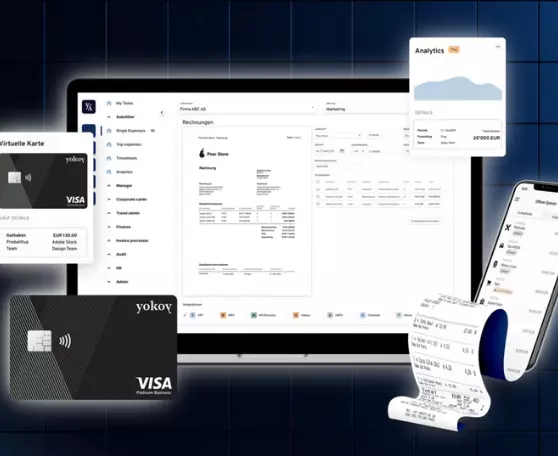
When managing a business fleet, implementing effective spending controls is crucial for maintaining a sustainable budget and optimizing operational efficiency. Fleet Fuel Cards, including options such as Wex and other industry leaders, offer the ability to control employee spending on fuel and associated vehicle expenses at various stations. By providing a structured approach to fuel purchases, these credit cards enable businesses to monitor each transaction and enforce personalized spending limits for their fleet drivers.
Understanding the card fees associated with these fuel cards is equally important. Each card, whether it's from well-known providers like FlexCard or Wex, will come with its own set of fees. These may include a basic annual card fee, transaction fees, and possibly additional charges for exceeding a credit limit or for late payment. It's essential for fleet managers to compare these fees across different cards, considering their potential impact on the business budget. A careful evaluation will ensure that the cards offer a competitive rate while aligning with the needs of your fleet.
Understanding the card fees associated with these fuel cards is equally important. Each card, whether it's from well-known providers like FlexCard or Wex, will come with its own set of fees. These may include a basic annual card fee, transaction fees, and possibly additional charges for exceeding a credit limit or for late payment. It's essential for fleet managers to compare these fees across different cards, considering their potential impact on the business budget. A careful evaluation will ensure that the cards offer a competitive rate while aligning with the needs of your fleet.
Another critical aspect is the ability to enforce spending controls across different stations. Businesses must consider the coverage and availability of the fuel card network to confirm it's compatible with the business's operational routes. Cards like Wex often provide extensive network coverage, allowing fleet employees to access a wide range of fuel stations, thereby enhancing convenience and efficiency.
When evaluating card fees, it's pivotal to look beyond the surface and delve into the finer details of each fee structure. For example, while one card might offer lower transactional rates, it could compensate with higher annual fees. Conversely, some cards might provide a more affordable card fee yet impose significant charges for exceeding the allocated credit limit. Therefore, aligning your spending controls with these nuances is vital for maximizing cost-effectiveness.
Fleet managers should leverage competitive rate comparisons between fuel cards, gas cards, and corporate fleet cards. By understanding the benefits and limitations of each, you can better utilize them to serve the unique demands of your business. Whether opting for a fuel card like Wex or another provider, ensuring that the credit terms and card fees align with your organizational goals is paramount to achieving operational success.
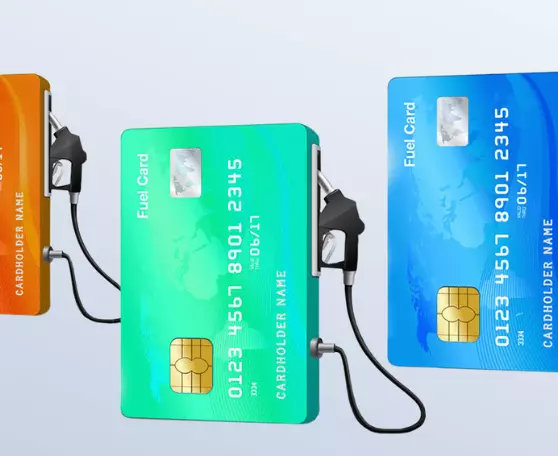
When managing a fleet, network coverage is a critical factor in selecting the right fuel cards, ensuring your drivers won't face obstacles on the road. The size and reach of a card's network can significantly impact a fleet's efficiency and cost-effectiveness. Motorists need access to numerous fuel stations across various regions, so choosing fuel cards with broad network coverage like Shell fleet or Wex fleet is crucial.
Shell fleet fuel cards offer extensive network coverage of Shell small gas cards, providing access to their expansive chain of stations. This vast network can reduce downtime for your drivers, allowing them to purchase fuel at multiple locations seamlessly. Additionally, Shell small gas cards come with advantages such as spending controls and detailed purchase records, keeping track of the gallons purchased and improving fleet management efficiency.
Another option to consider is the Wex fleet card. These fuel cards are known for their robust network coverage, which spans many fuel stations nationwide. With Wex fleet, your fleet can enjoy the freedom of fueling wherever and whenever required. These cards also come with comprehensive purchase reporting, which allows fleet managers to monitor and manage expenses effectively. Whether your fleet spans city roads or crosses state lines, having a fuel card with optimal network coverage is vital in keeping your operations running smoothly.
Fuel cards also provide critical benefits beyond just network coverage. Coastal fleets, for instance, may find particular advantages in selecting fuel cards that offer connectivity with specialized stations. These fleet cards are designed to align with specific fleet needs, ensuring that every gas station used contributes to streamlining the fleet's cost and operational plan. This is why a card comparison is essential in determining which fuel card best aligns with your fleet's unique requirements.
While network coverage assures accessibility, other crucial factors include fleet cards’ features that manage purchases, such as how many gallons can be filled, and integration with your fleet's insurance plans. By conducting a thorough card comparison, fleet managers can identify the fleet cards that offer not only optimal network coverage but also benefits like reduced fuel costs and comprehensive purchase tracking.
Selecting the right gas cards ensures that every stop at a fuel station is a smooth transaction, saving time and minimizing disruptions. With options like Shell small gas cards and Wex fleet cards, your fleet is equipped with the resources it needs to maintain efficiency and control. Explore the vast array of fuel card options available and prioritize the ones that offer the best network coverage and features to support your fleet’s unique needs. In doing so, you will enhance your fleet's productivity, ensure cost-effectiveness, and streamline operations.
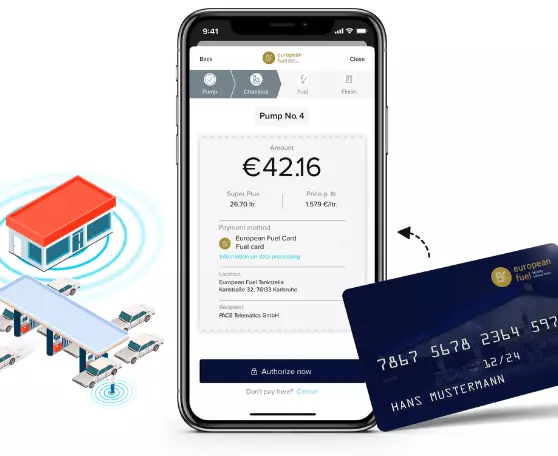
When it comes to managing a fleet, selecting the right fuel card is crucial for ensuring cost efficiency and smooth operations. A detailed card comparison can help you identify the best solutions that fit your unique business needs. There are several types of fuel cards available, including those specifically designed for trucking and small business operators. Fleet cards are essential tools that streamline fuel management, offering you significant savings and administrative convenience
The Fleet Fuel Card options vary widely, from the comprehensive packages offered by major providers like Fuelman and Wex Fleet to flexible choice like Flexcard. These cards often come with innovative features tailored to small businesses and large fleets alike. When choosing a fuel card, consider how each one can integrate with your existing systems and whether they offer solutions that can adapt to the needs of changing business environments.
A fuel card is more than just a means to purchase gas. Many cards offer extended business solutions that cater to diverse needs. For instance, the Shell Small Business Package provides detailed expense tracking and reporting, essential for maintaining transparency and control over fuel expenditures. Similarly, the BusinessPro fuel card allows businesses to manage their fleet's fuel consumption efficiently while benefiting from added advantages like rewards and discounts.
Understanding the unique offerings of each card is vital when conducting a fleet fuel card comparison. The Shell and Gas card options have carved a niche for themselves by offering competitive pricing and extensive network coverage, suitable for fleet operators who are looking to optimize their routes and reduce fuel costs.
Dealing with small accounts requires a careful approach, considering different business needs in terms of size, operation, and geographic coverage. The right fuel card solution can cater to these needs by offering dedicated support and customization options. Whether you're a small enterprise or a large corporation, seeking expert guidance in selecting the right card can lead to substantial savings and efficiency improvement
Companies like Fuelman and Wex Fleet have developed advanced fleet cards that not only address fuel cost issues but also provide tools for better fleet management. Meanwhile, Flexcard offers implicit flexibility that makes it ideal for small businesses and operators in need of adaptable solutions.
Current business trends highlight the importance of adapting to change, and expert insights play a pivotal role in this adaptation. Fuel cards present an opportunity for businesses to streamline their expenditure and implement robust spending controls. From comprehensive solutions to special packages like Shell Small Business Package, these options cater to diverse needs, ensuring that each business can find the card that aligns with their strategic goals.
In conclusion, whether you are part of the trucking industry or managing a mixed fleet, conducting a detailed comparison of fuel cards can reveal the best solutions tailored to your business dynamics. This structured approach ensures that businesses are equipped with the right tools to thrive in an ever-evolving market.
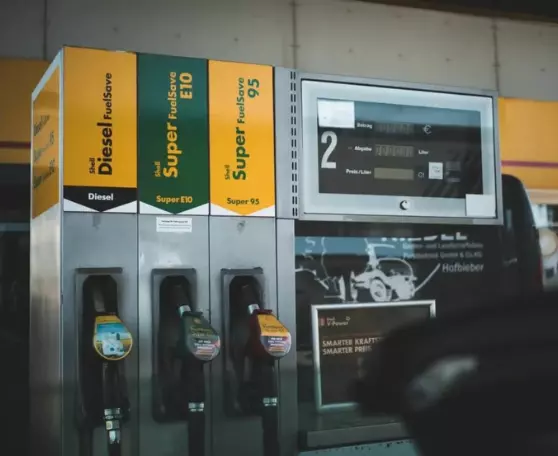
When it comes to efficient fleet management, choosing the right fleet fuel card is crucial. Businesses across various industries rely on these cards to streamline expenses and optimize fuel consumption. In this section, we'll compare some of the most sought-after fleet card providers—Shell Fleet, WEX Fleet, Fuelman, Fleet Fuel Card, and ExxonMobil. Let’s explore the unique solutions each provider offers and how they cater to different business needs, from small businesses to large public enterprises.
The Shell Fleet card is renowned for its extensive network coverage, ensuring that drivers can easily find a Shell gas station nearby. With Shell, businesses can access tailored solutions that cater to both small businesses and larger corporations, making it a versatile choice. Shell small business solutions offer unique benefits like spending controls and detailed reporting, which are invaluable for monitoring fuel expenses and enhancing fleet management.
Next, we have the WEX Fleet card, a powerhouse in the fleet management industry. Known for its vast array of services, WEX provides businesses with a variety of fleet and gas cards designed to meet specific fuel card needs. Their solutions include customizable options and spending controls, ensuring that businesses have a reliable way to track expenses and reduce unnecessary spending. By opting for WEX, your fleet gains access to a wide network, offering flexibility and peace of mind no matter where your vehicles are.
Fuelman offers another robust option for businesses looking to refine their fleet management. This provider excels in offering gas cards that come with flexible spending controls and card fees tailored to suit the unique requirements of different industries. Businesses that use Fuelman can benefit from efficient fuel card options aimed at maximizing productivity and minimizing cost. Fuelman's network coverage is comprehensive, guaranteeing that, regardless of your location, finding a fueling solution remains hassle-free.
Furthermore, ExxonMobil introduces FlexCard as part of its versatile card offerings. This card is specially designed for businesses that require tailored solutions to manage fuel efficiently. Through ExxonMobil's expansive network, businesses are assured of consistent and quality fuel access, reinforcing its standing as a reliable choice for both small businesses and extensive fleets. The FlexCard allows businesses to delve into efficient fuel management by offering detailed spending reports and more control over daily operations.
In conclusion, when conducting a comparison of fleet fuel cards, several factors should be considered—network coverage, spending controls, detailed reporting, and expense management. All these providers—Shell, WEX, Fuelman, Fleet Fuel Card, and ExxonMobil—offer solutions designed to cater to specific business requirements. Whether you’re exploring corporate fleet cards or simply seeking reliable gas cards, understanding the nuances and benefits of each can significantly impact the well-being and efficiency of your fleet management strategy.
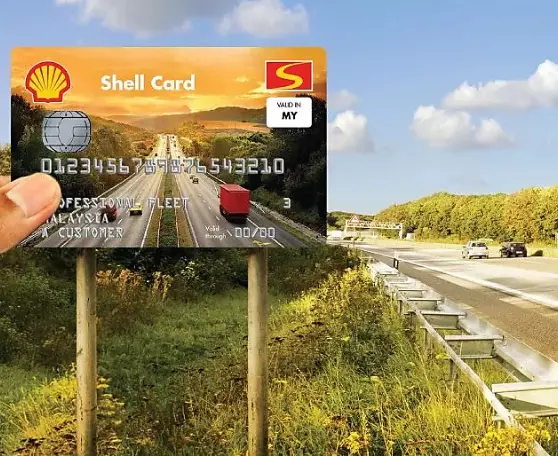
When evaluating Shell, Gas, and Other Fleet Card Options, it's essential to consider the variety and benefits each card offers, especially for small businesses and trucking operations. For many small business owners, the Shell small business fuel card proves to be a valuable asset due to its extensive station network coverage. The wide Shell fleet locations across the nation ensure that your employees can access fuel almost anywhere, reducing the time taken to search for nearby fuel stations. In comparison, the Fuelman and ExxonMobil cards provide different benefits, often featuring competitive rebates on gallons purchased that could result in significant savings over time for businesses prioritizing fuel efficiency. For a company operating a trucking fleet, network coverage and the technology behind these cards are crucial. The Shell small business card offers robust technology support, making it easy to monitor fuel purchases and manage payments effectively. The ability to control the amounts spent per employee not only helps maintain budget limits but also ensures that all purchases are business-related. Shell’s platform allows fleet managers to track transactions in real-time, assisting in strategic planning and operational efficiency. Coast and FlexCard are also notable contenders in the fleet card arena, offering unique benefits tailored to diverse business needs. Coast’s vast network and attractive rebates encourage small and large businesses alike to consider their cards for everyday fuel needs. FlexCard, with its unique payment structures, appeals to businesses that prefer flexibility when managing cash flow and fuel purchases. These cards cater to specific needs by providing solutions that align with the financial capabilities and operational requirements of varied businesses, ensuring that rebates and savings are maximized with every gallon purchased.
When it comes to choosing the appropriate card for your fleet, consider your primary operating regions. For instance, if your fleet operates predominantly in areas saturated with Shell stations, capitalizing on the Shell fleet card's rebates and extensive network coverage could provide substantial operational advantages. Alternatively, if your business frequently covers regions where ExxonMobil has a stronger presence, their corporate fleet card might provide higher rebates and easier payments due to greater network presence. Examining your specific business operations and needs, such as trucking routes, average gallons per fill, and desired payment technologies, will guide you toward the best fleet card options. Each company offers distinct technological support that can enhance operational efficiencies, like tracking systems and employee spending controls. Such features are no longer just enhancements but crucial elements that assist in safeguarding against unnecessary expenses, thus maintaining financial health. Ultimately, understanding the myriad options helps in aligning your fuel strategy with your business operations. Whether it’s a Shell fleet card, Fuelman card, or another competitor, selecting a card that balances technology convenience, network coverage, and rebates can significantly impact your fuel management strategies and overall business success.